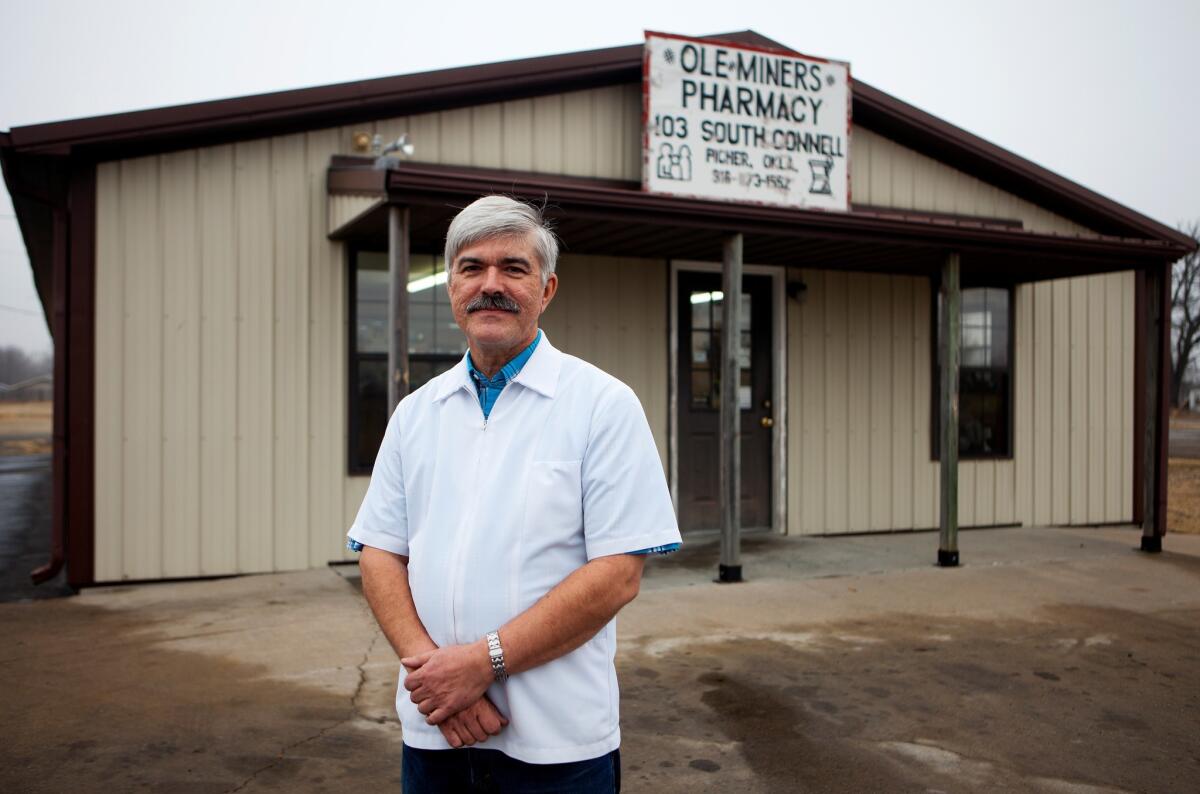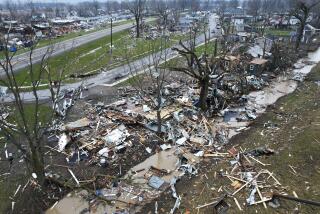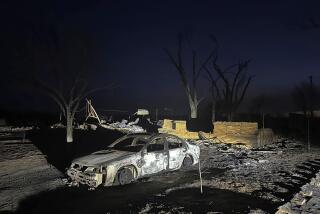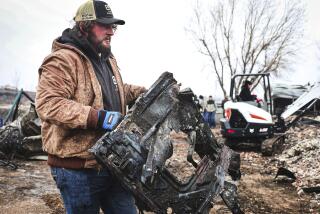Gary Linderman dies at 60; ‘last man standing’ in toxic Oklahoma town

Gary Linderman, known as “the last man standing” in tiny Picher, Okla., in 2011. Linderman died Saturday at 60.
When a tornado tore through tiny Picher, Okla., in 2008, leveling homes, flipping cars and destroying the last place in town to buy gasoline, there was little reason for folks to stick around.
The city, once 20,000 people strong when the zinc and lead mines were in full swing, had been emptying out for years, an exodus that accelerated when it was declared a Superfund site.
But Gary Linderman had no intention of leaving, even as his friends, neighbors and customers gave up on Picher.
Linderman, the owner and proprietor of the Ole Miner Pharmacy, came to be known as “the last man standing” or “Lights Out Linderman” for his pledge to stay, or at least turn off the lights if he were to leave town.
Linderman died Saturday at his home due to a “sudden illness,” according to the Thomas Funeral Home in nearby Welch. He was 60.
For years, customers from miles away continued to visit the pharmacy in the once-booming lead- and zinc-mining town in the northeastern corner of Oklahoma, about 20 miles southwest of Joplin, Mo.
At its peak in 1926 — eight years after it was founded — Picher sat at the center of the Tri-State Mining District, a rural area of Oklahoma, Kansas and Missouri that was the lead and zinc capital of the world. Once inhabited by Quapaw Indians, the area was largely agricultural, with fields of hay and cattle grazing on the prairie, before the miners began tearing into the earth in the early 1900s.
This corner of the state is best known as the home turf of baseball great Mickey Mantle, whose family moved to Commerce, a few miles south of Picher, when he was 4. His father worked in the mines. Mantle was married in a house in Picher and efforts are underway to save the house from destruction.
The town’s fate changed radically when the mines closed, and most residents left after the Environmental Protection Agency declared Picher a federal Superfund site in the 1980s. The 2008 tornado devastated those who remained. The town ceased municipal operations in 2009.
Born Sept. 8, 1954, Linderman moved to Picher and seemed to fall in love with the town and its residents, telling friends he remained hopeful it would make a comeback.
He became an unofficial spokesman of sorts for the city, appearing in local and national media.
“He loved to be interviewed,” friend Sherry Mills said. “We used to tease him that if anybody wanted to know or talk about Picher we would say, ‘Go see Gary,’ because he loved to talk about Picher.”
Linderman and his staff of three often delivered medications to customers in rural areas of nearby Arkansas, Kansas and Missouri.
“They’re not just customers, they’re friends,” Linderman once said in an interview. “I’ll be the last to go.”
Richard Chubb, a physician in Baxter Springs just across the Kansas border, met Linderman many years ago and the pair became fishing buddies.
“If somebody couldn’t afford the drugs the doctor ordered he’d give them free samples, or if he didn’t have samples he’d give them free drugs. He was as good a person as you’ll ever find,” Chubb said.
Longtime friend and former boss Ralph Wilburn hired Linderman to his first job out of college in 1977. He last spoke to Linderman on Friday, and said his friend never smoked, drank and was in good physical shape.
“I said, ‘Gary when are you going to retire?’“ Wilburn said. “He said, ‘Never, I love my people here.’“
Staff writer Abby Sewell and the Associated Press contributed to this report.
More to Read
Start your day right
Sign up for Essential California for the L.A. Times biggest news, features and recommendations in your inbox six days a week.
You may occasionally receive promotional content from the Los Angeles Times.







